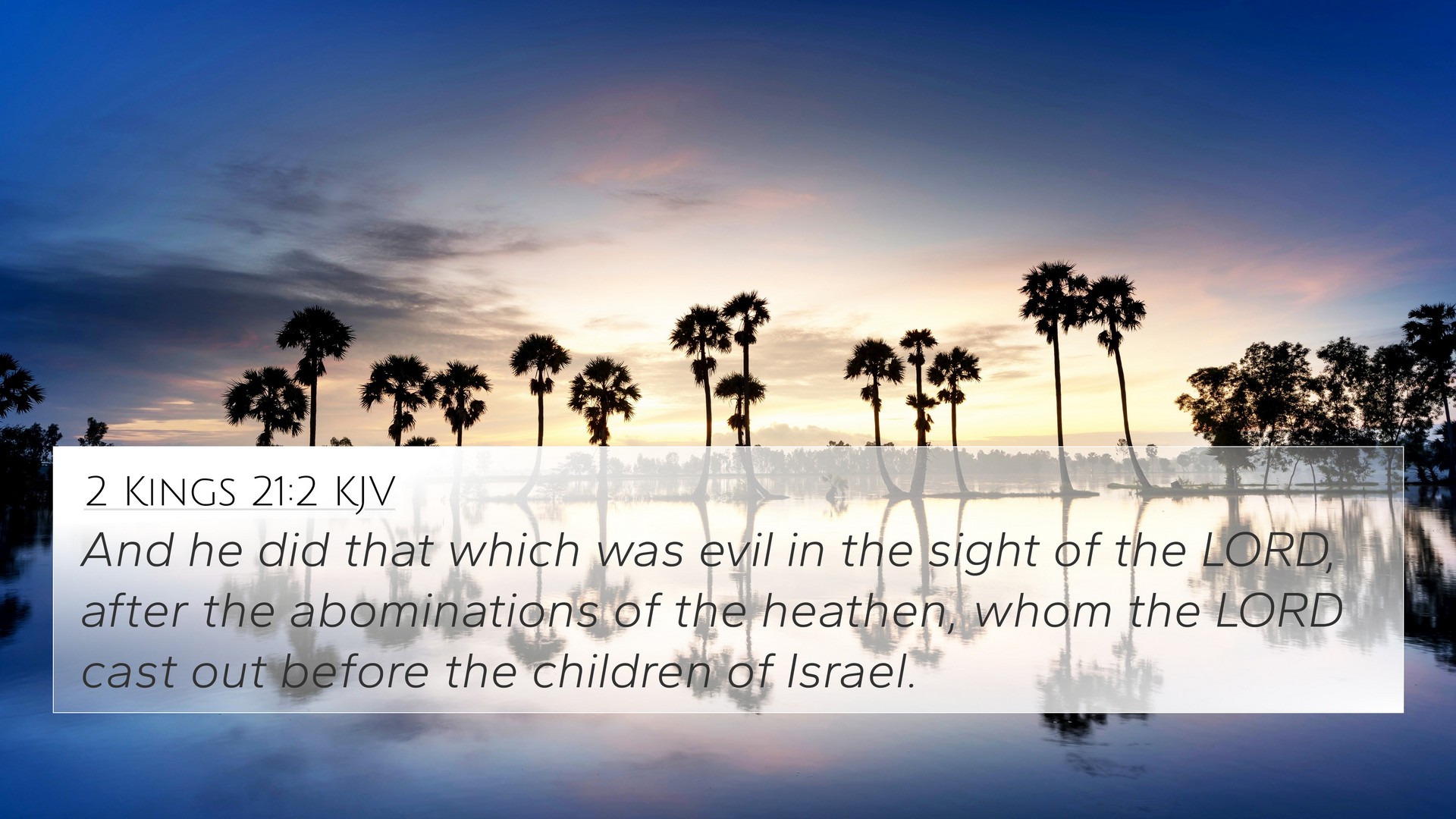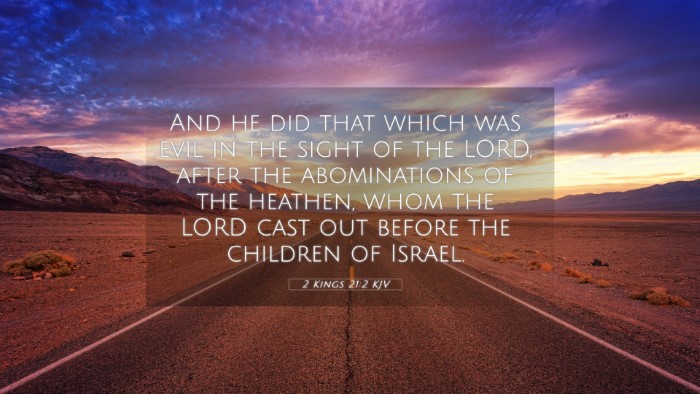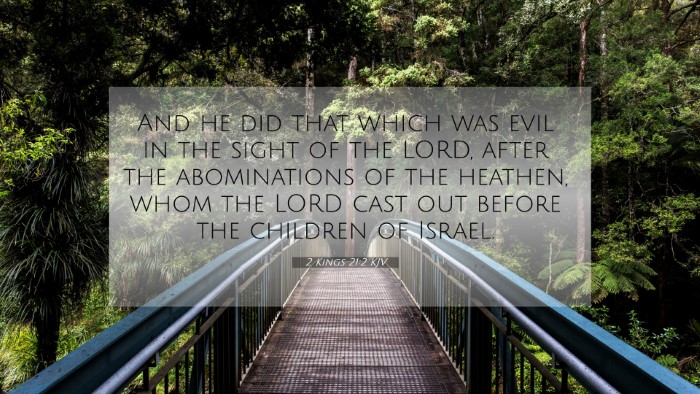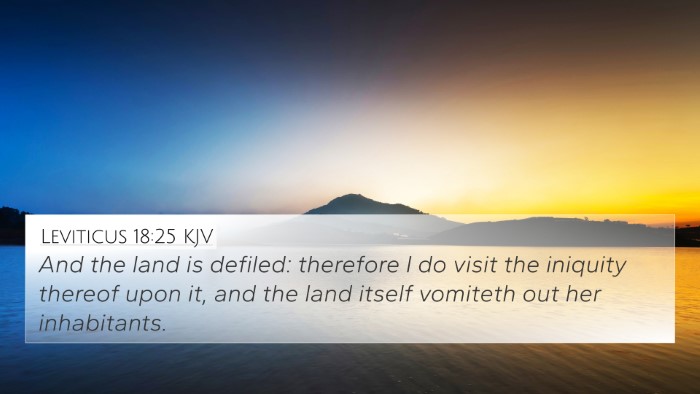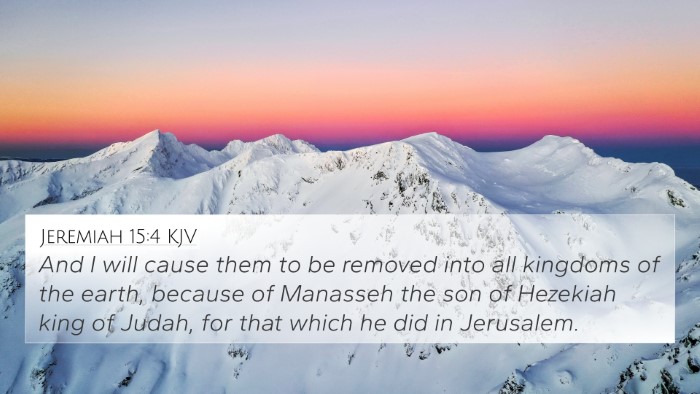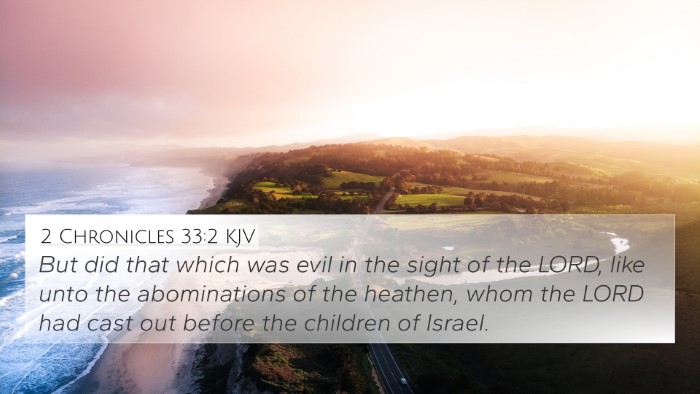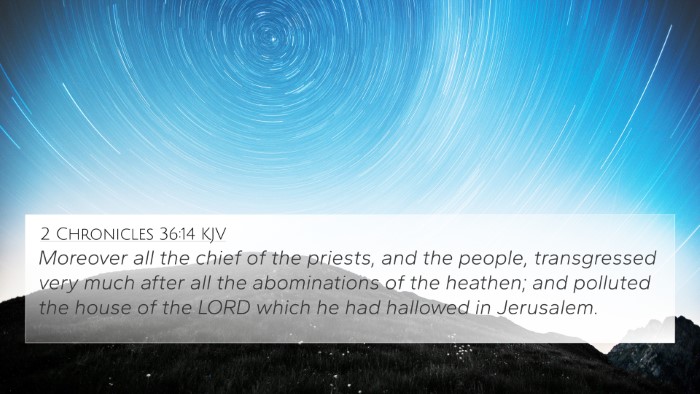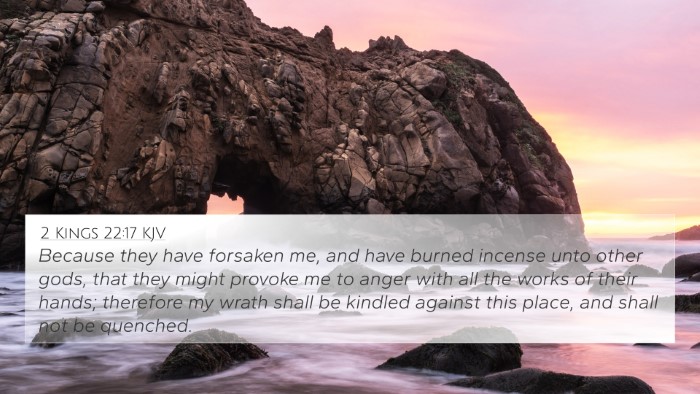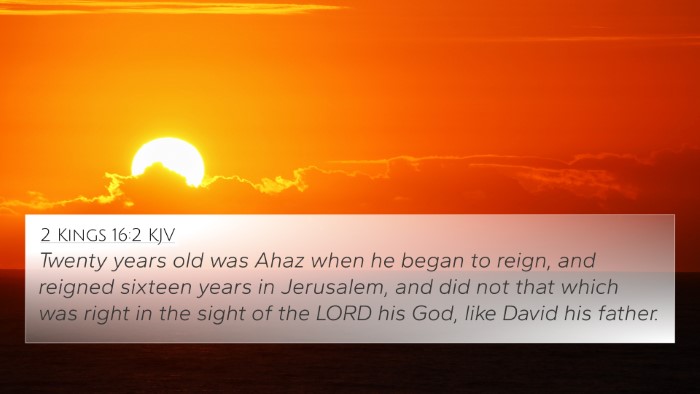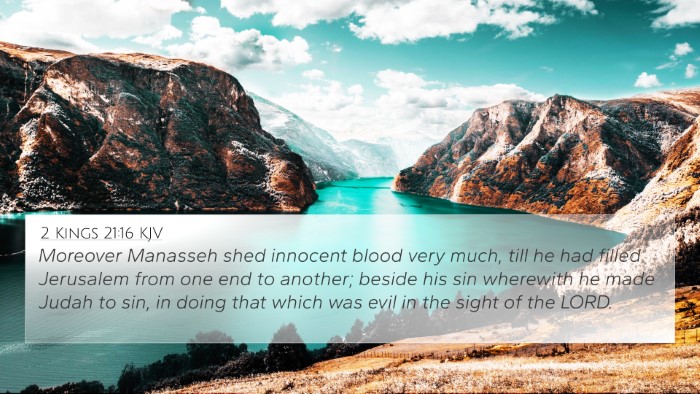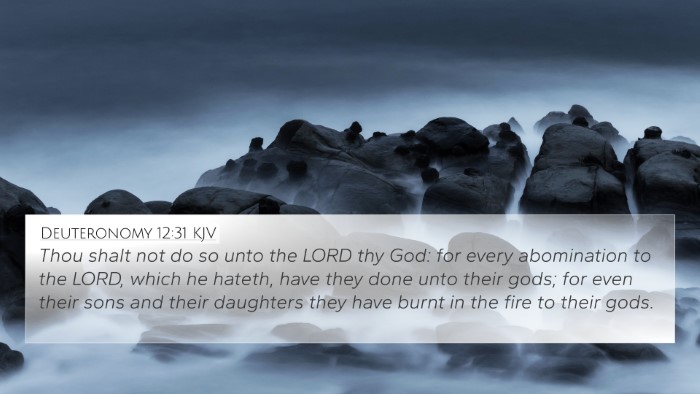Understanding 2 Kings 21:2
Verse: "And he did that which was evil in the sight of the Lord, after the abominations of the heathen, whom the Lord cast out before the children of Israel." - 2 Kings 21:2 (KJV)
Summary and Insights
This verse highlights the reign of King Manasseh of Judah and his profound disobedience to God's commands. It indicates that Manasseh engaged in practices that were detestable, aligning with the ungodly behaviors of the nations that God had expelled from the land of Canaan.
The commentary from Matthew Henry emphasizes that Manasseh's actions were not just wrong but were categorized as "evil in the sight of the Lord," showcasing a blatant disregard for divine law and the covenant established between God and Israel.
Adam Clarke adds that Manasseh's reign was marked by extreme idolatry and that his conduct led the nation into corruption, straying far from the ways established by previous kings who sought to honor God. This illustrates how the influence of leadership can lead a people into sin and apostasy.
Meanwhile, Albert Barnes refers to this period as one of spiritual decline and chaos, underlining the severity of Manasseh's actions which included the restoration of pagan worship and even human sacrifices. Barnes draws connections to the earlier warnings issued by the prophets about the dangers of such practices, particularly in relation to the nation's covenant with God.
Key Themes
- Evil Actions Against God: The verse underscores the profound significance of adherence to God's commandments, showing the impact of leading a nation astray.
- Influence of Pagan Practices: Reflects the dangers of adopting idolatrous practices, which can lead to widespread moral corruption.
- Consequences of Leadership: The responsibilities of rulers and their influence on the spiritual direction of their people.
- Divine Judgment: Suggests that the actions of Manasseh would bring about severe consequences as seen later in the narrative of Israel's history.
Bible Cross-References
To gain a more comprehensive understanding of 2 Kings 21:2, we can reference related Scripture. Below are several key Bible verses that connect to its themes:
- Deuteronomy 12:30-31: Warns against following the practices of the nations God is displacing.
- 2 Chronicles 33:1-9: Provides a more detailed account of Manasseh's reign and his repentance later in life.
- Jeremiah 32:35: Discusses the practices that God explicitly denounced, such as child sacrifice.
- 1 Kings 16:30-32: Relates the evil actions of Ahab, similar in nature to Manasseh’s disobedience.
- Isaiah 57:3-5: Addresses the consequences of idolatry and the company it keeps.
- Ezekiel 18:30-31: Calls for repentance from sin, reinforcing the importance of turning back to God.
- Matthew 24:37-39: Comparatively discusses the state of society before the flood, showcasing the wrath of God upon evil.
- Romans 1:18-32: Highlights the consequences of turning away from God, paralleling the themes of disobedience.
- Galatians 6:7-8: Emphasizes the principle of sowing and reaping, aligning with divine retribution for wickedness.
- Revelation 21:8: Speaks about those who will face judgment for their evildoings, relating to the ultimate consequences faced by Manasseh.
Conclusion
The exploration of 2 Kings 21:2 through these insights reveals the critical nature of spiritual integrity and the severe ramifications of turning away from God. Using tools for Bible cross-referencing, the connections between this verse and others deepen our understanding of its implications and the broader narrative of Scripture. By studying these parallels and engaging with thematic Bible verse connections, one can attain a deeper recognition of God's enduring truth and justice.
